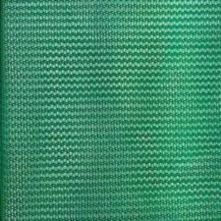Get A Quote
BIS Certification for Agro Textiles: Shade Nets Made from Monofilament Yarns IS 16008 (Part 2):2016

As modern agriculture moves towards
sustainable, resource-efficient solutions, agro
textiles play a pivotal role in enhancing crop yield, quality, and
protection. Among these, shade nets—especially
those made from monofilament yarns—are
widely used in agricultural and horticultural applications to create a
controlled environment that mitigates the effects of harsh weather, excessive
sunlight, and pests.
As modern agriculture moves towards
sustainable, resource-efficient solutions, agro
textiles play a pivotal role in enhancing crop yield, quality, and
protection. Among these, shade nets—especially
those made from monofilament yarns—are
widely used in agricultural and horticultural applications to create a
controlled environment that mitigates the effects of harsh weather, excessive
sunlight, and pests.
To ensure the quality, safety, and performance of these products, the Bureau of Indian Standards (BIS) mandates certification under the Indian Standard IS 16008 (Part 2):2016, which specifically covers shade nets made from monofilament yarns.
What is IS 16008 (Part
2):2016?
IS 16008 (Part 2):2016 is the Indian
Standard that defines the technical and
quality requirements for shade nets
made from HDPE (High-Density Polyethylene) monofilament yarns. These nets
are designed for use in open-field
farming, polyhouses, nurseries, and horticultural setups, where they help
regulate sunlight exposure, temperature, humidity, and wind conditions.
Unlike tape yarn-based shade nets, monofilament yarn shade nets are known
for:
The standard specifies constructional and performance parameters such as mass per unit area, fabric strength, bursting pressure, and UV resistance, which are essential for effective agricultural protection.
Why BIS Certification is
Mandatory
BIS certification ensures that the
product:
For manufacturers, BIS certification allows the legal use of the ISI mark on products and opens up access to both domestic and international markets, enhancing trust and credibility.
Key Quality Parameters and
Tests Performed
To be certified under IS 16008 (Part
2):2016, shade nets made from monofilament yarn must pass several rigorous
quality assessments to ensure they meet the intended agricultural standards.
Major Tests
Performed:
● Materials
● Fabric and Construction
● Colour and Colour Fastness to
Artificial Light
● Dimensions and Mass
● Mass
● Average Breaking Strength of
Fabric
● Retention of Breaking Strength
after UV Exposure
● Bursting Strength
● Shading Percentage
These tests are conducted under controlled laboratory conditions as per BIS protocols to simulate real-life agricultural usage and ensure long-term performance.
BIS Certification Process
Obtaining BIS certification involves a
structured compliance process that includes the following steps:
- Application Submission: The manufacturer submits an online application along with necessary documentation about raw materials, production processes, and quality systems.
- Factory Audit: BIS officials conduct a factory inspection to assess manufacturing capability, testing infrastructure, and quality control processes.
- Product Testing: Random samples are taken and tested in BIS-recognized laboratories as per IS 16008 (Part 2):2016.
- License Grant: Upon successful verification and test results, a BIS license is issued, authorizing the manufacturer to affix the ISI mark on the product.
To Know The Process in Detail, Please Visit:
Under BIS Registration Products ISI and CRS
Documents Required for BIS Certification
To apply for BIS certification, manufacturers need to submit the following documents:
● Application form
● Manufacturing process details
● Quality control plan
● Test reports from BIS-approved laboratories
● Factory layout and equipment details
● Proof of business registration
● Product specifications and technical details
● Declaration of conformity to Indian standards
Additionally, manufacturers may be required to provide proof of compliance with environmental and safety regulations, depending on the specific type of product being certified.
BIS ISI Mark Certification Costing And Timeline
How EVTL India Helps
Navigating the BIS certification
landscape can be complex for manufacturers—especially with detailed
documentation, in-depth testing, and factory audits. EVTL India, a trusted name in BIS
compliance consulting, offers complete assistance in:
With a proven track record and in-depth industry knowledge, our experts ensure that your shade nets comply with IS 16008 (Part 2):2016 seamlessly and efficiently.
Conclusion
BIS certification under IS 16008 (Part
2):2016 is essential for manufacturers of monofilament yarn-based shade nets
looking to establish product credibility and meet national quality standards.
These agro textiles serve as a foundation for sustainable agriculture and
improved productivity in India’s diverse climatic zones.
Partner with EVTL India to achieve
certification quickly and effectively—ensuring your product stands out in the
growing agro-textile market.
Free Call Back
Latest News & Update
📅 BIS Critical Component List (CCL) Updates for Solar PV Modules
🕒 BIS Fee Concessions for MSMEs and Startups | EVTL India
📅 Guidelines for Implementation of Essential Requirements for Security of CCTV
🕒 Omnibus Technical Regulation (OTR) Amendment Order, 2025
🕒 Extension of Timeline for Filing Annual Returns by Battery Producers
📅 Extension of Timeline for Filing Quarterly and Annual Returns for E-Waste
🕒 Extension of Concurrent Running Period for IS 302-1: 2008 and IS 302 (Part 1): 2024
🕒 BIS Guidelines for Grant of Licence (GoL) | EVTL India
📅 CPCB Guidance on filing of Application, Fees and more
🕒 CPCB Notification on Labelling of Plastic Packaging
📅 Mandatory Compliance for Input Materials of Steel and Steel Products for Imports
🕒 BIS Guidelines for Scheme-X Certification for OTR-Regulated Products
📅 BIS Upgrades Product Certification License Numbers to 10-Digit Series
🕒 BIS Certification No Longer Mandatory for 14 Chemical & Polymer Categories
Why Choose EVTL INDIA
Expertise in Indian Regulatory Standards
End-to-End Support
Trusted by Top Indian & Global Brands
Fast Processing & Transparent Pricing
Strong Liaison with Indian Authorities
Company Profile















